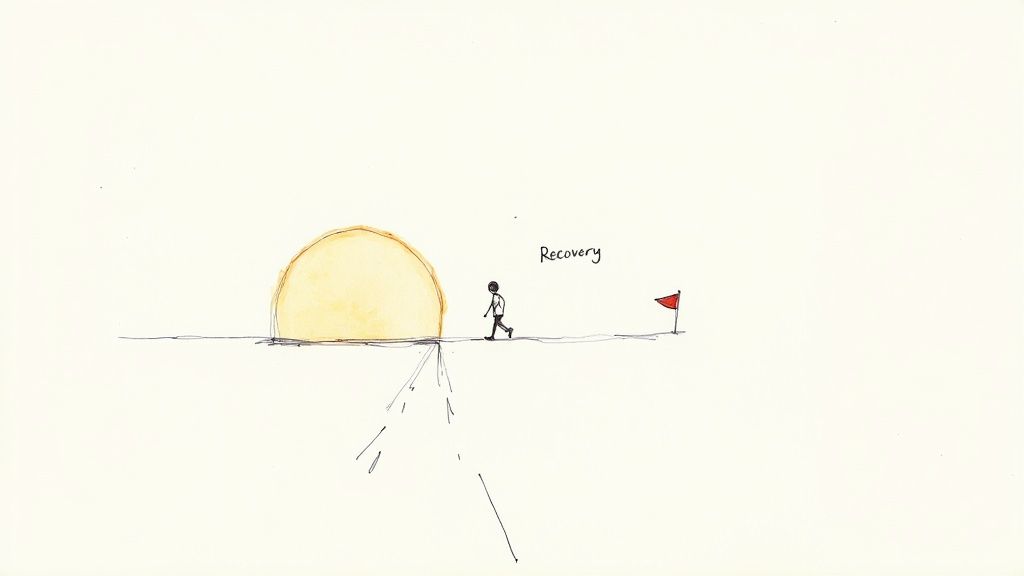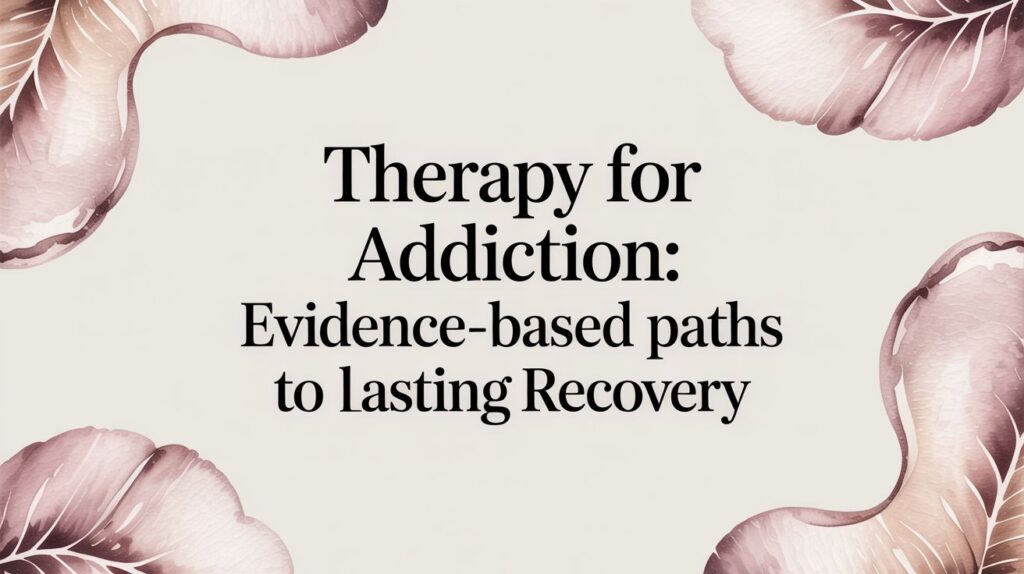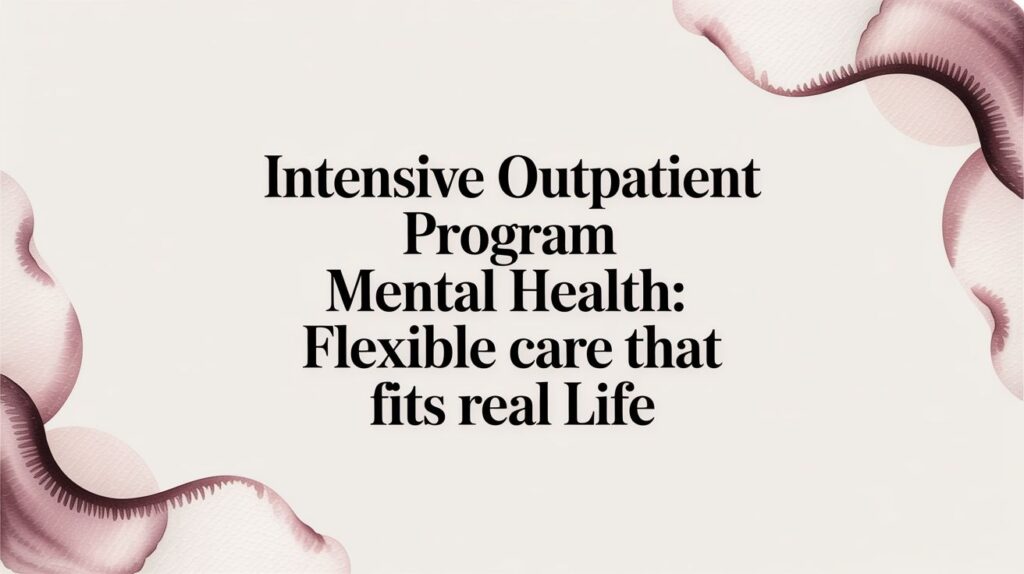When someone you care about enters rehab, it’s a pivotal moment filled with hope, fear, and uncertainty. Finding the right words can feel like walking a tightrope. You want to be supportive without being overbearing, encouraging without sounding naive, and present without enabling. This guide is designed to remove that guesswork and provide a practical roadmap for what to say to someone in rehab.
The communication gap between a person in treatment and their loved ones is real, often stemming from a simple lack of information. This article moves beyond generic advice like "be positive." Instead, we offer specific, actionable scripts and phrases tailored for different situations: the first phone call, in-person visits, casual texts, and even difficult conversations about relapse. You will learn not just what to say, but why certain words are more effective than others in fostering trust and validating their courageous journey.
Understanding the recovery process itself can also strengthen your communication. To effectively navigate conversations and offer meaningful support, it helps to understand the diverse therapeutic approaches they might be exploring, such as learning about the many benefits of art therapy for mental health. Your words are powerful tools that can either build bridges or walls. This guide will help you use them to construct a foundation of unconditional support, reinforcing that their decision to seek help is the most important step they’ve taken toward a new life.
1. Affirming Their Commitment to Recovery
One of the most powerful and supportive things you can say to someone in rehab is a simple, genuine affirmation of their choice. Entering a treatment facility is an incredibly difficult decision, often made at a moment of profound vulnerability. By acknowledging their courage, you validate their efforts and reinforce the positive nature of this significant life change.
This approach focuses on celebrating the action, not just the person. It recognizes the strength, self-awareness, and hope required to seek professional help. This kind of validation can be a crucial source of encouragement, especially during the early, challenging days of treatment when self-doubt can be overwhelming.

Why This Approach Works
Affirming their commitment shifts the focus from the past struggles with addiction to the present, proactive steps they are taking. It frames rehab not as a punishment but as a courageous act of self-care and a commitment to a better future. This positive reinforcement helps counteract feelings of shame or guilt that often accompany substance use disorders.
It also sets a supportive tone for all future interactions. By starting with respect and admiration for their decision, you establish yourself as a safe and encouraging presence in their recovery network. This helps them see the many benefits of sobriety on alturarecovery.com not as distant goals, but as attainable outcomes they are actively working toward.
How to Implement This in Conversation
Keep your language direct, personal, and sincere. The goal is to make them feel seen and respected for the difficult choice they've made.
Actionable Tips:
- Be Specific: Instead of a generic "Good job," try, "It takes so much strength to do what you're doing, and I'm really proud of you for choosing this path."
- Use Their Name: Personalizing the message makes it more impactful. For example, "Sarah, I've been thinking about you. This is a huge step, and I believe in you."
- Focus on the Action: Highlight the decision itself. Say, "Making the choice to be here is the hardest part, and you did it. That's amazing."
- Express Unconditional Support: Reassure them that your support isn't dependent on a specific outcome. A simple, "I'm here for you, no matter what," can mean the world.
Example Scripts:
- On a first call: "I was so glad to hear you're getting the support you deserve. It takes real courage to do this, and I'm so proud of you."
- In a text message: "Thinking of you. You made the right choice, and I'm here cheering you on every step of the way."
- During a visit: "Seeing you here, committed to your health, is inspiring. This decision shows how strong you truly are."
2. Offering Unconditional Support Without Judgment
When you’re considering what to say to someone in rehab, one of the most crucial elements is communicating that your support is unconditional and free of judgment. People with substance use disorders often carry a heavy burden of shame and fear of rejection. Offering support that isn't contingent on their success or failure creates a safe, stable foundation for their recovery.
This approach lets them know you see them as a whole person, separate from their addiction. It acknowledges their past struggles without condemnation, focusing instead on the present effort and your unwavering presence in their life. This sense of security can be a powerful motivator, allowing them to be vulnerable and honest without fear of losing your respect or love.

Why This Approach Works
Unconditional support helps dismantle the shame that fuels the cycle of addiction. When someone feels judged, they are more likely to hide their struggles, avoid seeking help, and relapse. By removing judgment, you open the door for genuine communication and trust, which are essential components of a strong support system.
This stance also prepares you to be a resilient supporter. Recovery is rarely a straight line; there may be setbacks. Your unconditional love shows them that even if they stumble, they won't be abandoned. This is especially vital when dealing with complex situations, as many individuals face co-occurring mental health challenges alongside addiction. Providing this stability is a core principle in an integrated dual diagnosis treatment on alturarecovery.com, where consistent support is key to addressing all aspects of a person’s well-being.
How to Implement This in Conversation
Your language should focus on acceptance, reassurance, and your consistent presence in their life. The goal is to separate the person from the disease and affirm your unwavering care for them.
Actionable Tips:
- Separate the Person from the Addiction: Use language that shows you see their intrinsic worth. For instance, "I know addiction has been a part of your life, but it doesn't define who you are to me."
- Focus on Your Commitment: Emphasize that your support is not temporary. Say, "I want you to know that I'm in your corner, today and tomorrow, no matter what happens."
- Avoid "But" Statements: Phrases like "I love you, but…" can feel conditional. Instead, use "and" to connect your feelings with the reality of the situation. For example, "This is a difficult journey, and I am here to support you through it."
- Validate Their Feelings: Acknowledge how hard their journey is. Simply saying, "I can't imagine how tough this is, and I admire your strength for facing it," shows empathy without judgment.
Example Scripts:
- During a difficult conversation: "You don't have to pretend everything is okay with me. I'm here for you, and nothing you say will make me think less of you."
- In a letter or card: "Thinking of you and sending all my love. Please remember that you are more than your struggles, and my support for you will never change."
- In response to them sharing a past mistake: "Thank you for trusting me enough to share that. My focus is on where you are now and the incredible work you're doing. The past doesn't change how much I care about you."
3. Avoiding Toxic Comparison and Competition Narratives
One of the most supportive things you can do is to treat your loved one's recovery as the unique, individual path it is. Consciously avoiding comparisons to others in recovery or creating a competitive dynamic is crucial for their well-being. This approach focuses entirely on their personal journey, their pace, and their specific milestones, preventing feelings of inadequacy or pressure.
Entering rehab can already feel isolating, and hearing about how someone else is "recovering faster" or had it "so much worse" can be incredibly damaging. Instead of motivating, these comparisons often breed shame, resentment, and a sense that their progress isn't good enough. Focusing on their individual experience honors their journey and validates their personal efforts.
Why This Approach Works
Avoiding comparisons validates the person's unique struggle and reinforces that there is no "right" or "wrong" way to heal. Every person's relationship with addiction is different, shaped by their history, biology, and environment, meaning their recovery will be just as distinct. This perspective fosters self-compassion and allows them to concentrate on their own goals without external pressure.
This approach helps you become a more effective listener and a safer support figure. It signals that you are there to support their journey, not to judge it against a preconceived timeline or another person's story. This focus on individual progress is a cornerstone of sustainable, long-term healing, preventing the shame that can often trigger a relapse.
How to Implement This in Conversation
Keep your focus centered on your loved one’s feelings, experiences, and progress. When you talk, make sure the conversation honors their individual path and reinforces your support for them specifically.
Actionable Tips:
- Listen More Than You Speak: When they share, focus on their story. Avoid the temptation to bring up stories you've heard about other people's recovery.
- Redirect and Re-center: If the conversation veers toward comparing them to others, gently guide it back. Say something like, "Everyone's path is different. I'm most interested in hearing about how you are doing."
- Avoid Minimizing Phrases: Steer clear of statements like, "At least you're not dealing with…" or "So-and-so had it much worse." These phrases invalidate their pain.
- Celebrate Small, Personal Wins: Acknowledge their individual milestones, no matter how small they seem. For example, "I'm so proud that you attended all your group sessions this week. That's a huge accomplishment."
Example Scripts:
- If they compare themselves to others: "Your recovery is your own journey. There's no timeline or comparison. What matters is that you're here and doing the work for yourself."
- In a text message: "Thinking of you today. I'm so proud of your progress, whatever pace feels right for you."
- During a visit: "I'm not here to compare your progress to anyone else's. I'm just here to support you. Let's focus on what you've achieved and what you're working on now."
4. Asking Thoughtful Questions Instead of Offering Unsolicited Advice
One of the most supportive communication strategies is to shift from giving advice to asking gentle, open-ended questions. When someone is in rehab, they are immersed in a highly structured environment of therapy and self-reflection. Offering unsolicited advice can inadvertently undermine this process, making them feel lectured rather than heard.
This approach prioritizes listening and genuine curiosity, empowering the individual to articulate their own experiences and insights. By asking thoughtful questions, you create a space for them to process their journey aloud, reinforcing the work they are doing in treatment. It shows you trust their ability to find their own answers with the guidance of their treatment team.
Why This Approach Works
Asking questions instead of giving directives places the person in rehab in the driver's seat of the conversation. It respects their autonomy and intelligence, which is crucial for rebuilding self-esteem that addiction often erodes. This method validates their personal experience and encourages them to take ownership of their recovery.
Furthermore, it prevents you from making assumptions about their needs or feelings. Addiction and recovery are deeply personal, and what worked for one person may not work for another. Thoughtful inquiry helps you understand their unique perspective, allowing you to provide support that is genuinely helpful and tailored to their current situation. It transforms the dialogue from a one-way lecture into a two-way connection.
How to Implement This in Conversation
Focus on questions that invite reflection, not ones that demand a specific answer or justification. The goal is to open a door for them to share, not to interrogate them.
Actionable Tips:
- Use Open-Ended Questions: Start questions with "How" or "What" to encourage detailed responses. For example, "What's one thing you've learned about yourself this week?" is more effective than "Are you learning things?"
- Avoid "Why" Questions: "Why" questions can often sound accusatory or judgmental, even if unintended. Instead of "Why did you do that?", try "What was that experience like for you?"
- Listen Actively: Pay full attention to their response without planning what you'll say next. Your primary role here is to be a supportive listener.
- Ask Permission: If you do feel you have a valuable insight, ask for permission to share it first. Say something like, "I have a thought on that, would you be open to hearing it?"
Example Scripts:
- During a phone call: "I'd love to hear about the program if you're open to sharing. What's been resonating with you the most so far?"
- In a text message: "Thinking of you. No pressure to respond, but I'm curious: what's been the most helpful part of your week?"
- During a visit: "It's good to see you. How are you feeling about the goals you're working on right now? What kind of support would feel best from me when you get out?"
5. Acknowledging Difficulty While Maintaining Hope
A powerful way to support someone in rehab is to validate their struggle while simultaneously expressing confidence in their ability to succeed. Recovery is not a simple or easy process, and pretending otherwise can feel dismissive. By acknowledging the difficulty, you show empathy and understanding, which helps your loved one feel truly seen and heard.
This balanced approach combines validation with encouragement, creating a powerful message of realistic optimism. It communicates that you understand the immense challenge they are facing but also believe in their resilience and strength to overcome it. This is a crucial distinction from toxic positivity, which can invalidate their genuine feelings of hardship.

Why This Approach Works
This method works because it mirrors the reality of recovery: it is both incredibly difficult and entirely possible. When you acknowledge the hard parts, you build trust and make your expressions of hope more believable. It prevents the person from feeling like they need to pretend everything is fine, allowing for more honest and meaningful conversations.
This approach normalizes the ups and downs inherent in the healing process. By framing challenges as an expected part of the journey, you reduce the potential for shame when they face a difficult day or a setback. It reinforces the idea that the incredible long-term benefits of sobriety are worth fighting for, even when the fight is tough.
How to Implement This in Conversation
The key is to connect the validation of their struggle directly to your belief in their strength. Use "and" or "but" to bridge the two ideas, showing that hardship and hope can coexist.
Actionable Tips:
- Validate First: Always start by acknowledging their feelings or the difficulty of the situation. This shows you are listening.
- Connect Difficulty with Hope: Use phrases like, "I know this is hard, and I also know how strong you are."
- Be Realistic: Avoid clichés. Instead of "You've got this," try, "This process will test you, but I've seen you handle tough situations before, and I believe you can do this too."
- Normalize the Struggle: Remind them that having difficult days is normal and okay. Say, "It's completely understandable to feel overwhelmed sometimes. That's part of the process."
- Base Confidence on Their Strengths: Mention specific qualities you admire in them. For example, "You are one of the most determined people I know, and that will serve you well."
Example Scripts:
- On the phone: "I can only imagine how tough some days must be in there. But I also know you have what it takes to get through this. You're doing the work."
- In a letter or email: "I've been thinking about you and how hard this journey must be. Please remember that recovery isn't a straight line. You are doing the right thing, and it will be worth it."
- During a visit: "This is so hard, I know that. But seeing you here proves how committed you are. That commitment is what will see you through the difficult moments."
6. Respecting Professional Boundaries and Treatment Plans
When figuring out what to say to someone in rehab, one of the most constructive things you can do is express respect for their professional treatment team and the structured plan they are following. This approach involves communicating in a way that reinforces the authority and expertise of the professionals guiding their recovery, rather than inadvertently undermining their work.
By showing that you trust the process, you become a supportive ally to both your loved one and their treatment program. It signals that you are on the same team, dedicated to their healing, and respectful of the therapeutic environment they need to succeed. This alignment can prevent confusion and reinforce the lessons they are learning in therapy.
Why This Approach Works
Expressing respect for the treatment plan helps your loved one fully invest in their recovery without feeling caught between outside opinions and professional guidance. It minimizes the risk of them feeling pressured to please you or feeling like they have to defend their program’s methods. This unified front is especially crucial when dealing with complex issues.
This stance also helps manage your own anxieties. By trusting the experts, you can step back from trying to "fix" the situation and focus on your role as a supportive presence. For many, treatment addresses multiple issues at once, and a professional plan is key. Understanding the importance of an integrated dual diagnosis treatment plan on alturarecovery.com can clarify why deferring to their clinical team is so beneficial.
How to Implement This in Conversation
Your language should convey confidence in the professional process and support for your loved one’s participation in it. The goal is to show you are a collaborative part of their support system, not a competing authority.
Actionable Tips:
- Follow Facility Rules: Adhere strictly to visiting hours, approved communication channels, and rules about what can be brought into the facility.
- Avoid Contradicting Advice: Never offer advice that conflicts with what their counselors or therapists have told them. If you disagree with something, keep it to yourself.
- Phrase Concerns Carefully: If you have a question, frame it with curiosity. Instead of "Are you sure that's the right way to handle it?" try, "That sounds interesting. What did your counselor say about that approach?"
- Support Their Aftercare Plan: When they discuss their post-rehab plans, reinforce the importance of following the professional recommendations for continuing care.
Example Scripts:
- On the phone: "It sounds like your treatment team really knows what they're doing. I'm so glad you have that level of professional support."
- During a family therapy session: "I'm here to listen and support the goals you and your counselor have set. Please let me know how I can best help with that."
- In a letter: "I'm not the expert here, so I'm putting my trust in your team and in you. I'm committed to supporting the plan they've created for your long-term health."
7. Using Present-Focused Language and Avoiding Shame References
One of the most compassionate and effective communication strategies is to keep your conversations grounded in the present. This means intentionally focusing on what your loved one is doing right now in their recovery and looking toward the future, rather than dwelling on past mistakes or behaviors that may have caused pain. This approach actively dismantles shame, which is a major barrier to healing.
When someone is in rehab, they are already working through their history with therapists and counselors. Your role as a supporter is not to rehash their past but to reinforce the positive, forward-moving actions they are taking today. By concentrating on their current efforts, you help them build a new identity centered on recovery, not addiction.
Why This Approach Works
Focusing on the present and future prevents conversations from devolving into blame or guilt. Addiction is often accompanied by immense shame, and referencing past failures can trigger these feelings, potentially undermining the progress being made. A present-focused approach frames recovery as a constructive process of building a new life, which is far more empowering.
This method also allows you to have more productive and hopeful conversations. When you ask about their current goals or the strategies they are learning, you engage with their recovery journey in a meaningful way. This shows you are interested in the person they are becoming, not just the person they were. It's a key part of learning what to say to someone in rehab to foster genuine connection.
How to Implement This in Conversation
Shift your language to be immediate and forward-thinking. Consciously redirect conversations away from blame or past grievances and toward current actions and future possibilities.
Actionable Tips:
- Use Present-Tense Verbs: Frame your sentences around current actions. For example, "I see you're working so hard on your goals" is more effective than, "I hope you don't do what you did last time."
- Focus on Current Efforts: Acknowledge the work they are putting in today. Say, "I'm so impressed with your commitment to attending group sessions."
- Ask About Current Strengths: Inquire about what they are learning or what new skills they are developing. A question like, "What's one new coping strategy you've found helpful this week?" is constructive.
- Celebrate Current Behaviors: Praise the small, daily choices that support recovery, not just major milestones. "It's great that you're creating a new routine for yourself."
Example Scripts:
- If they bring up a past mistake: "I understand that was a difficult time, but I'm more focused on the incredible work you're doing right now to build the life you want."
- When discussing their progress: "Instead of talking about what went wrong before, can you tell me about the strategies you're learning this time to stay strong?"
- In a text message: "Thinking of you today and all the positive steps you're taking. Keep moving forward!"
8. Setting and Communicating Healthy Boundaries
Support isn't just about what you say; it's also about what you do to protect your own well-being. Setting healthy boundaries is a crucial, compassionate act that sustains long-term support. It involves clearly and kindly communicating what you can and cannot do, ensuring that your relationship remains healthy and that you don't enable destructive behaviors or burn out from the emotional weight of their recovery.
Communicating boundaries is an act of love for both yourself and the person in treatment. It models healthy relational dynamics, which is a core component of recovery. Instead of creating distance, clear boundaries build a foundation of respect and honesty, allowing you to offer sustainable support without sacrificing your own mental, emotional, or financial health.

Why This Approach Works
This approach works because it replaces enabling and codependency with genuine, healthy support. Addiction often thrives in environments with blurred or nonexistent boundaries. By establishing clear limits, you disrupt unhealthy patterns and create a structure where your loved one can focus on their own accountability and growth.
It also protects your relationship from the resentment that can build when you overextend yourself. When you know what to say to someone in rehab, and that includes communicating your limits, you are setting the stage for a more honest and balanced dynamic post-treatment. This prevents burnout and ensures you can remain a consistent, positive force in their life.
How to Implement This in Conversation
When setting boundaries, the key is to be compassionate but firm. Use "I" statements to focus on your needs and feelings, rather than making the other person feel blamed or punished. The goal is to communicate a rule for the relationship, not a judgment on their character.
Actionable Tips:
- Be Specific and Clear: Vague boundaries cause confusion. Instead of "I need more space," try, "I can visit on Saturdays, but I need to keep my weeknights free to recharge."
- Explain Your 'Why' Gently: Help them understand your reasoning. Say, "I love you, and to be the best support I can be, I need to protect my own mental health. That's why I can't discuss stressful financial matters right now."
- Use 'I' Statements: Frame the boundary around your needs. For instance, "I am not comfortable lending money while you're focusing on your recovery."
- State It as a Decision: Present your boundary as a non-negotiable decision you've made for your well-being, not a threat. "I've decided I will no longer make excuses for you to others."
- Be Consistent: The most important step is to uphold the boundary every time. Inconsistency sends mixed messages and undermines the structure you're trying to build.
Example Scripts:
- Financial Boundary: "I fully support your recovery, but I can't help with money. My role is to offer you emotional support."
- Time/Energy Boundary: "I'm so happy to talk on the phone twice a week, but I can't be available for calls at all hours. I need to maintain my own schedule to stay healthy."
- Emotional Boundary: "I am here to listen about your progress in treatment, but I can't get involved in discussions that blame other family members. Let's keep our focus on your healing."
8-Point Comparison: What to Say to Someone in Rehab
| Approach | 🔄 Complexity | ⚡ Resources & Time | 📊 Expected outcomes | Ideal use cases | ⭐ Key advantages & 💡 Tips |
|---|---|---|---|---|---|
| Affirming Their Commitment to Recovery | Low 🔄 — simple, direct | Low ⚡ — quick, requires sincerity | Boosts motivation and self‑esteem; moderate impact 📊 | Early treatment entry; moments of encouragement | ⭐ Reinforces agency; 💡 Be specific and genuine |
| Offering Unconditional Support Without Judgment | Moderate 🔄 — continual practice | Moderate ⚡ — emotional availability over time | Reduces shame and defensiveness; strengthens trust 📊 | Ongoing family support; rebuilding relationships | ⭐ Creates safe space; 💡 Balance with clear boundaries |
| Avoiding Toxic Comparison and Competition Narratives | Low–Moderate 🔄 — requires restraint | Low ⚡ — mindful communication | Lowers pressure, jealousy and relapse triggers 📊 | Peer groups, social media, family conversations | ⭐ Honors individual pace; 💡 Celebrate small personal milestones |
| Asking Thoughtful Questions Instead of Offering Unsolicited Advice | Moderate–High 🔄 — guided skill (MI/Socratic) | Moderate–High ⚡ — time and attentive listening | Promotes self‑reflection, autonomy, less resistance 📊 | One‑on‑one talks, coaching or supportive listening | ⭐ Empowers decision‑making; 💡 Use open‑ended "how/what" questions |
| Acknowledging Difficulty While Maintaining Hope | Moderate 🔄 — emotional balance needed | Low–Moderate ⚡ — empathetic effort | Feels authentic; prevents toxic positivity; realistic motivation 📊 | During setbacks or honest check‑ins | ⭐ Validates struggle and maintains optimism; 💡 "Validate, then offer perspective" |
| Respecting Professional Boundaries and Treatment Plans | Low–Moderate 🔄 — follow program rules | Low ⚡ — restraint and coordination | Supports clinical effectiveness; reduces conflicts 📊 | Interactions during inpatient/outpatient treatment | ⭐ Protects therapy integrity; 💡 Communicate through proper channels |
| Using Present‑Focused Language and Avoiding Shame References | Moderate 🔄 — habit change | Low ⚡ — conscious speech adjustments | Reduces shame, rumination; encourages forward momentum 📊 | Everyday conversations, post‑relapse discussions | ⭐ Promotes resilience; 💡 Use present‑tense and "I" statements |
| Setting and Communicating Healthy Boundaries | High 🔄 — consistent enforcement required | Moderate ⚡ — planning and follow‑through | Prevents caregiver burnout; reduces enabling; sustainable support 📊 | Caregivers, codependency, long‑term support situations | ⭐ Protects wellbeing and relationship health; 💡 Be specific, explain the "why," stay consistent |
Continuing the Support: Your Role After Rehab
Navigating the delicate landscape of what to say to someone in rehab is a skill built on empathy, patience, and a willingness to learn. As we've explored, the most powerful communication is not about finding a single "perfect" phrase. Instead, it's about consistently showing up with genuine care, respecting the recovery process, and fostering a safe emotional space for your loved one.
Moving beyond generic platitudes and adopting specific, affirming language can fundamentally change the dynamic of your relationship. It shifts the focus from their past struggles to their present courage, creating an environment where they feel seen, valued, and empowered rather than judged or scrutinized.
Key Takeaways for Lasting Support
The journey doesn't conclude when the formal treatment program ends; in many ways, it's just beginning. The principles discussed throughout this guide become even more critical as your loved one transitions back into daily life. Let's recap the most vital concepts to carry forward:
- Affirm Effort, Not Just Results: Consistently acknowledge the hard work they are putting in each day. Phrases like, "I'm so proud of your commitment to your health," are far more impactful than comments focused solely on sobriety milestones.
- Boundaries are an Act of Love: Remember that healthy boundaries protect both you and your loved one. Clearly communicating what you are willing and able to do (e.g., "I can drive you to a meeting on Tuesday, but I can't lend you money") is essential for a sustainable, healthy support system.
- Curiosity Over Correction: When in doubt, ask thoughtful, open-ended questions instead of offering advice. Asking, "What's been the most helpful thing you've learned this week?" invites them to share their experience without feeling like they're being lectured.
- Focus on the Present: Keep your language centered on the here and now. Avoid bringing up past mistakes or creating future anxieties. Your role is to be a supportive presence for the person they are today, on the path they are walking right now.
Your Words as a Foundation for Recovery
Mastering what to say to someone in rehab and, more importantly, after rehab, is about building a foundation of trust. Your words become the bedrock upon which a new, healthier relationship can be built. This isn't about walking on eggshells; it's about choosing your words with intention and care.
The Goal of Your Communication: Your primary objective is not to "fix" them but to support them. Effective communication reinforces their autonomy, respects their journey, and reminds them that they are not alone.
By implementing these strategies, you are doing more than just offering encouragement. You are actively contributing to a positive recovery environment that can buffer against the inevitable stresses and triggers of post-rehab life. Your consistent, compassionate, and boundaried support is one of the most powerful and protective factors in their long-term healing. You are showing them, through your actions and your words, that they are worthy of recovery and that you believe in their ability to achieve it.
The skills to support a loved one through recovery are learned and strengthened over time. If you are looking for professional guidance to improve family communication and build a resilient support system, connect with the experts at Altura Recovery. Our family programs are specifically designed to equip you with the tools to navigate these conversations effectively, fostering a healing environment for everyone involved. Learn more at Altura Recovery.








